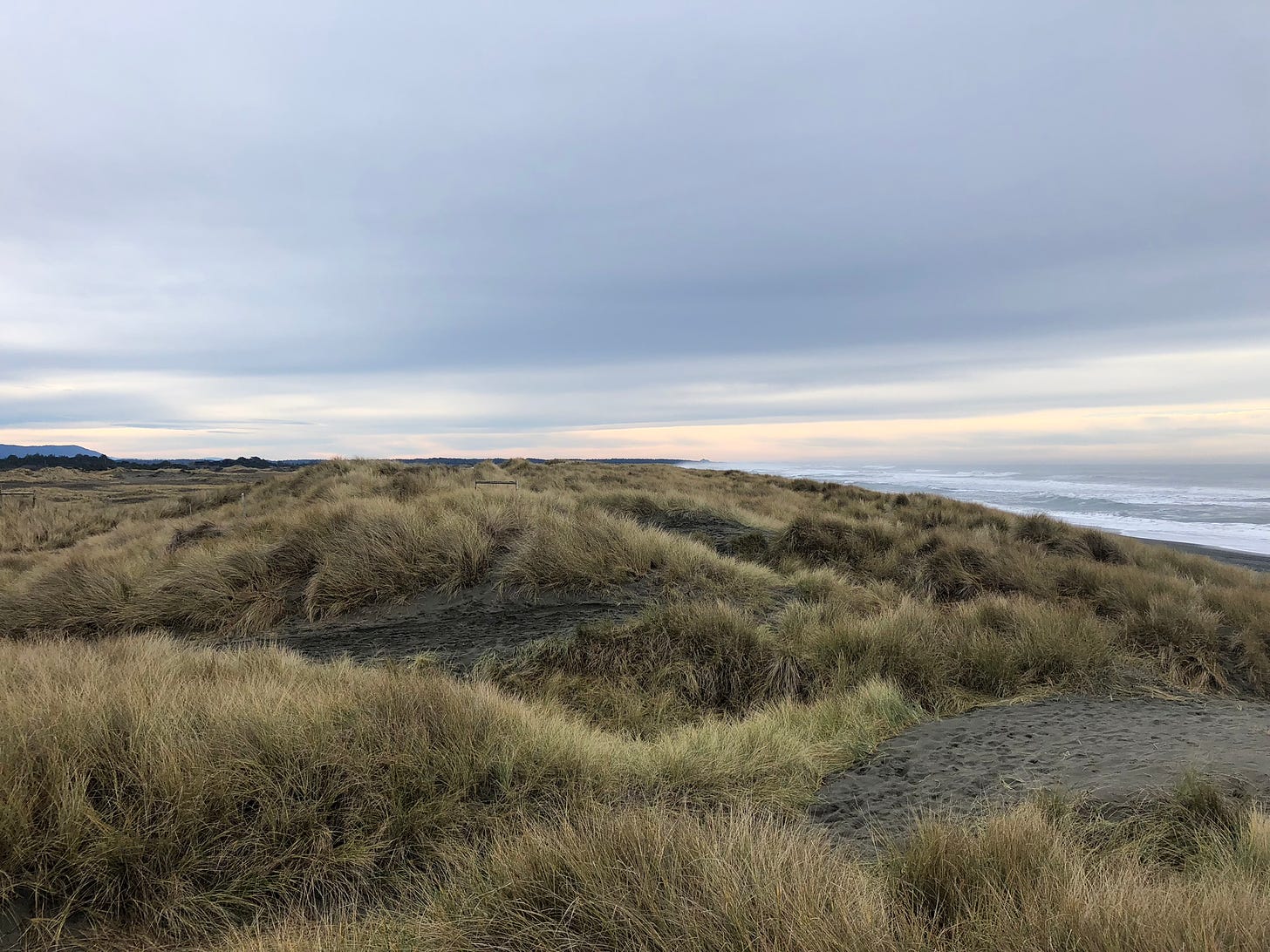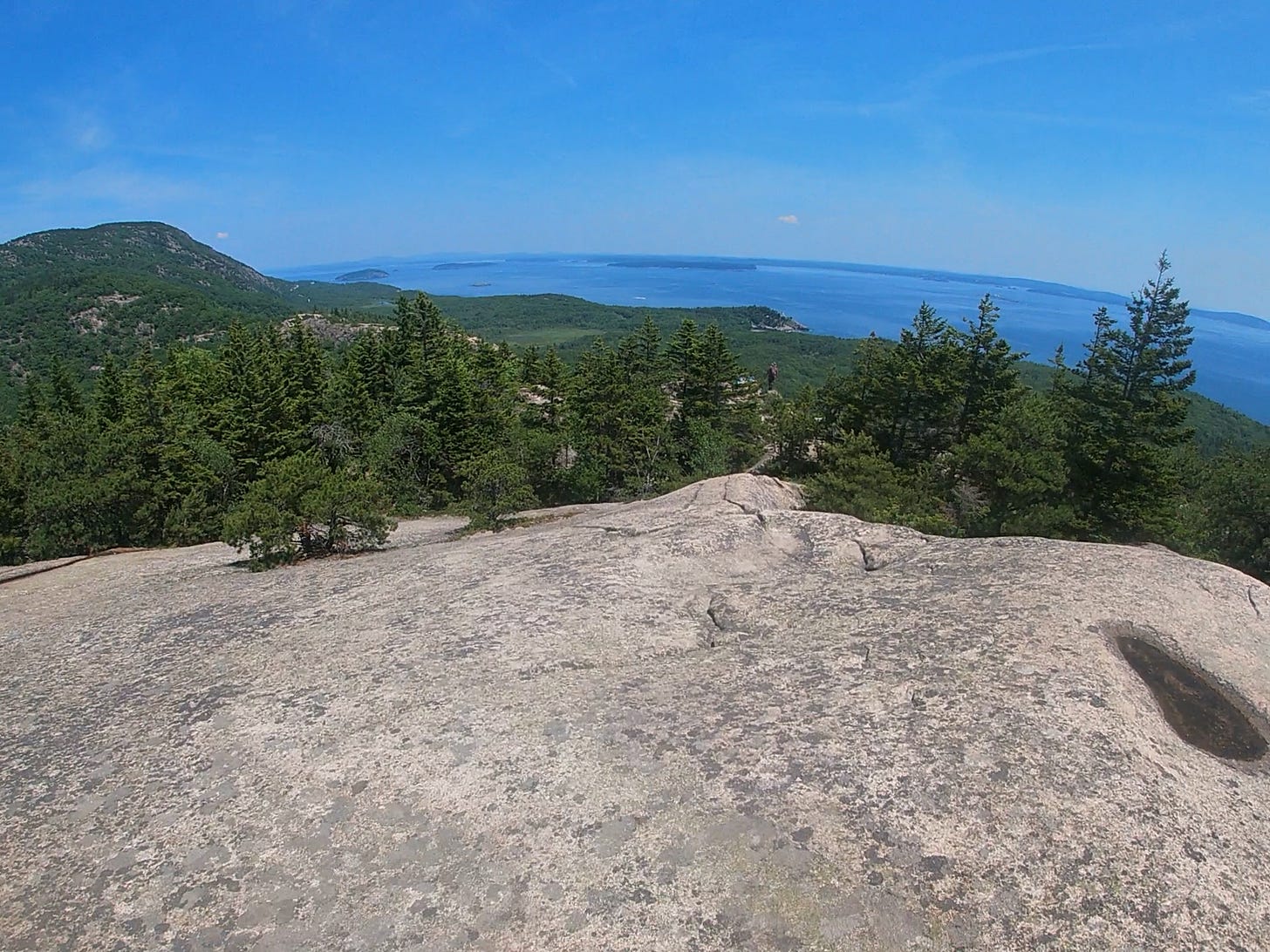
Do you ever just feel bad about something you did or said or thought a long time ago, even if it’s probably inconsequential in the grand scheme of things? This happens to me constantly. Recently I was dwelling on one of the ones that particularly haunts me from time to time.
When I was 16, toward the end of my junior year, two guys from the senior class died in a tragic, freak off-roading accident. One of them, Kevin, was someone I knew well enough to nod at in the halls. The other, Josh, was a good friend, someone I’d known for more than half my life at that point. (To this day I still call his mom Mom, if that helps you contextualize. His brother Louis and I still text pretty much weekly.)
Josh’s funeral was a total blur. I was ripped apart by the first real grief of my life, totally unmoored. Kevin’s funeral I remember more clearly, I suppose because it wasn’t a service for someone I’d considered family. For whatever reason, 13 years later, I can still remember clearly a thought I had when I was sitting in the pews, a thought that I was ashamed of as soon as I’d had it and am still ashamed of now. It might be a good thing to die young, I remember thinking, looking around the standing room-only church, if it means that this many people still care about you enough to come mourn you.

In my teenage imagination there was no way for an adult to have this many people mourn them. The years and all the growth and change and parting that they entail would necessitate a dwindling in the number of people that could care for and love somebody; there would be no way to rally a whole community in the cause of grieving a single person.
Stupid, of course. A teenage thought if ever there was one. When I am feeling kind to myself I remember that I was experiencing devastating loss for the first time. (I had previously lost two grandparents, but I had years to prepare for that, and while it was deeply sad it had not fallen on my head out of the blue spring sky like this had.) I processed that grief like a lot of 16 year-olds process everything: by making it about me, however briefly. When I’m feeling especially kind I also let myself remember that it’s not even a value judgment to say that—what else does a 16 year-old kid have to compare anything to? I’d barely lived a life at that point; how could I not make it about me?
Anyway if you need proof that there’s a lot to be said for how many people will show up to celebrate you and mourn you after you’ve lived a long time, check out the video below. It’s one snippet from a tribute show for the late John Prine that aired a few weeks ago, with Bill Murray introducing Sturgill Simpson. Artists from Jason Isbell to Kevin Bacon, from Billy Bob Thornton to Kasey Musgraves, showed up to sing or reminisce about Prine’s life and the parts they were lucky enough to play in it.
Few of us will be remembered so famously, but we can all strive to be remembered so fondly, for however long we’re given.
John Prine’s death—the same week that Bernie Sanders ended his presidential run, closing out a year of hard work and reckless hope for me—touched me in ways I wasn’t prepared for, either. Coming as it did during a period of such profound loneliness for millions of people during the first serious weeks of lockdown, it was one of those things that both amplified the loneliness and made apparent just how much love and community there is to be had out in the world.
You've broken the speed of the sound of loneliness
You're out there running just to be on the run
I’ve written about loneliness a few times in this newsletter before—the utility and necessity of feeling it, as long as it doesn’t turn into full-on alienation. Austin Kleon recently dedicated a blog post to that same idea, collecting the words of Thomas Merton and Maggie Nelson, among others, to make the point. “This desire to be together in order to not feel alone is an unfortunate symptom, in my opinion,” he quotes from Andrei Tarkovsky. “Every person needs to learn from childhood how to spend time with oneself.”

To be clear I’m not arguing for misanthropy. (To paraphrase Hunter S. Thompson in a way he’d surely scoff at, I hate to advocate a nearly guileless faith in humanity to anyone, but it’s always worked for me.) I think the value of solitude is in its ability to get us to confront our truest selves, to understand ourselves more fully so that we might better understand others. Acknowledging the importance of one’s own rich interiority is, I think, a necessary piece of being able to acknowledge that others possess that, too. In my case my periods of intense loneliness and longing have also allowed me to recognize just how badly—and for what specific reasons—I need the people I care about. And as we gear up for another generation of era-defining fights that demand solidarity if we are to have any hope of winning them, this is a crucial muscle to be able to flex.
There are some other components I think we can work on, individually and collectively, to become the kind of people who are capable of changing the forecast, not just weathering the storm. Hope, for instance.
[Hope] is tied to the most rigorous realism … it is an attitude of conquest and of a decision to fight. It is an entirely positive, constructive, demanding, and vigorous value. Hope involves an ethic, and it produces in us the appearance of power. It orders time. Nothing in the time of our technological society any longer has order, ordination, nor any qualitative reciprocal variety. Everything flows with insipid liquidity. Yesterday and tomorrow are meaningless … Hope is constructive of true time.
That’s from Jacques Ellul’s Hope in Time of Abandonment, which I found courtesy of L.M. Sacasas’ “The Convivial Society” newsletter. I like the idea that it is our hope that orders our time. Constructing time based on one’s hopes—which Ellul points out are not wishes, but sincere commitments to fight—is the surest way possible to give meaning to the present, rather than only to some rosy past or grand future. Blaise Pascal, cited by Sacasas later in that issue, said of this imperative:
We scarcely ever think of the present; and if we think of it, it is only to take light from it to arrange the future. The present is never our end. The past and the present are our means; the future alone is our end. So we never live, but we hope to live; and, as we are always preparing to be happy, it is inevitable we should never be so.
Of course it is difficult to focus on the real meaning of the present, most of the time. Most of us are too busy working or keeping up with the other demands of our lives. (One more argument in favor of learning to make the most of loneliness and solitude: rarely do we have more cause to be present, I mean really and truly existing in the moment, than when we are left to our own devices for a few hours or days without distraction.)

Jeffrey Moro—who you may remember from last week’s issue, regarding “Cop Shit,” has thoughts on this phenomenon of the present as well.
Time is thoroughly commodified, with no shortage of opportunities to buy and sell it. But of course Marx knew this, inscribing temporality at the heart of his critique of capitalism with such concepts as necessary and surplus labor time. And as Marx notes, we are not all called upon to buy and sell our time equally. Who can afford next week’s shiny new labor-saving device? Who is pressed into the service of others? Eight hours for work, eight hours for sleep, eight hours to do what we will began as a revolutionary slogan but has if anything become a straightjacket—a rule that, transmuted into the forty-hour work week, we seem unable to imagine past.
Building our time around a schedule that we could reasonably assume has always existed—but was in fact a relatively recent revolutionary demand, one that is now once more inadequate to our real lives—has left many of us feeling mired down in the days, weeks, years of work. And you’d be forgiven for wondering just when it is that your real life is supposed to start in the midst of all that.
This is the lesson of the pandemic: we are now obligated to playact the standardized time that capitalism demands of us, now without any of the external social trappings. We are locked in a battle with the ticking clocks of our own emails and 9 AM Zoom meetings. Is it no wonder that so many of us feel that time is out of joint, when we are faced daily with the resounding contradiction between our clocks and our lived experience? Or that social unrest emerges in a moment when many have that most precious resource of all: free time?
Anyway I think the comments section of this newsletter works, so if you feel like sharing a time that you think you may have benefited from a period of intense solitude, I’d love to hear about it. Ditto for the ways in which you construct your present to give it more meaning. (Writing about these things doesn’t mean I’m good about actually doing them.) It behooves all of us to think about our time, and how we might use it to build a world so that everyone’s time has the potential to be spiritually and morally richer. I’m going to keep at it—I hope you’ll join me.
-Chuck
As always, if you enjoyed this newsletter, please feel free to subscribe to get it right in your inbox. If you want to support this effort financially, you could buy my book, A Good Place for Maniacs: Dispatches from the Pacific Crest Trail, now available online just about everywhere.




"Intense solitude" is a strange phrase for me, considering I've never truly lived alone. Aside from a couple roommates who remained strangers for the length of our living arrangements, I've always shared space with people I am close to (parents, grandfather, best friend, SO). I can say though, that I have experienced isolation within those situations. One in particular stands out to me. I was 25, had just moved back to the States after 4 years of teaching in China and moved in with my parents and grandfather in a new, big city. The reverse culture shock was awful. It took me a solid 6 months to adjust... physically, mentally, emotionally, spiritually, all of it. I felt I was as prepared as I could have been. I talked with friends who had recently endured the transition, had a loose-fitting "plan" of how to ease the transition, and constantly reminded myself that I should expect the struggles and give myself time, grace, and love. So that's what I did. I didn't go to the store alone, I avoided large crowds, and I focused on the things that were easy for my mind to control. I made a lot of rice, continued exercise routines that I had before the move, and minimized my exposure to American culture. It was, and still is, one of my favorite chapters in my life. It was hard, really hard, but I learned so much about who I am and who I wanted to become. I wrote daily, sometimes 3-4 times a day, just getting out whatever thoughts were rushing through my head. I spoke to myself in Chinese because I missed hearing the language. I visited the local Asian markets to find some of my cherished snack foods. I educated those around me on the culture, people, foods, and life that I lived for the past 4 years. I missed my Chinese life, but in a good way.
Anyway, that was a rambling if I ever saw one! I say all this to say: I have not handled quarantine with the same attitude. To be fair, circumstances are vastly different. I finished up nursing school in April, with the last half of my most important clinicals online (ugh). I studied for and passed the NCLEX with almost no distractions because, well, I couldn't really do anything BUT study. And since then I've been job hunting. It's been 5 weeks since I became licensed and I just landed my first interview, scheduled for tomorrow. When I haven't been scouring the Internet for new gran RN positions, I've just binge-watched TV and filled my time with nonsense. This time of isolation has been different in every way from the time I experienced 5 years ago when I moved back from China. But, I'm mostly happy with the way I've handled it. Sure, I could have worked out more. I get better at that every day. I've improved my healthy eating habits. But most importantly, I've listened to my body and done what I needed at that time. After battling through nursing school for 1.5 years nonstop, I needed a break. I've needed the rest. Now, I'm ready to pick up and go.
In summary, I think it's important to ask yourself what you need during times like these. One day it may be cherry pie and iced tea, but the next you might need a 15 mile bike ride out to the beach. It doesn't really matter, honestly. You don't have to have something to show for this time. You have nothing to prove. If you set goals for yourself, woo! If you don't, woo! (Then again, I'd like to entertain the thought that not setting a goal for yourself is, in fact, setting a goal for yourself, heh.)
These are my ramblings. :)